We were lucky to catch up with Lavender Fire recently and have shared our conversation below.
Lavender, thanks for joining us, excited to have you contributing your stories and insights. Can you talk to us about how you learned to do what you do?
If we’re talking about songwriting, I learned it from writing a lot of awful songs so I could get to the good stuff. See, I started out as a poet and I remember my first attempts at songwriting were nothing more than putting my poems to music. It took years of figuring out that writing a pop song and writing poetry are two different things. They CAN merge sometimes, and I’ve since developed a style that is poetic but can still be singable and work in a song. But it took a LOT of tries. I’ve probably written a thousand songs at this point, but the first two hundred were awful.
If we’re talking about singing, I learned that from years of voice lessons. When I was a teenager, I joined my high school choir and my teacher recommended that we all take private voice lessons so we could get the individual attention we couldn’t get in a big classroom. My first voice teacher taught me to sing classical and folk music. I sang in Italian, French, Spanish, and German, rarely in English. As a result, my voice took on a classical, rounded tone (think “Phantom of the Opera”) that I eventually had to unlearn in order to sing more contemporary music. Places like School of Rock, where you learn how to sing rock and pop music, didn’t exist yet!
For the producing side of things, I learned by just getting in there and figuring out what the buttons do! I started on Acid Music WAYYYYYYY back in the day, then I moved to GarageBand. Nowadays, my DAW of choice is Logic Pro X. And I learned by just doing and also looking up YouTube tutorials to help me out.
For me the skills that were most helpful were my desires to learn more and my willingness to try new things. I was also willing to acknowledge when I needed help figuring something out, so I’d go to YouTube to figure out what I needed. Looking back on it, I wish I could’ve gone to school to formally study music producing and engineering, but these days, it’s much easier and more accessible to do those kind of things. Also, women just weren’t encouraged to learn music production back in my day.
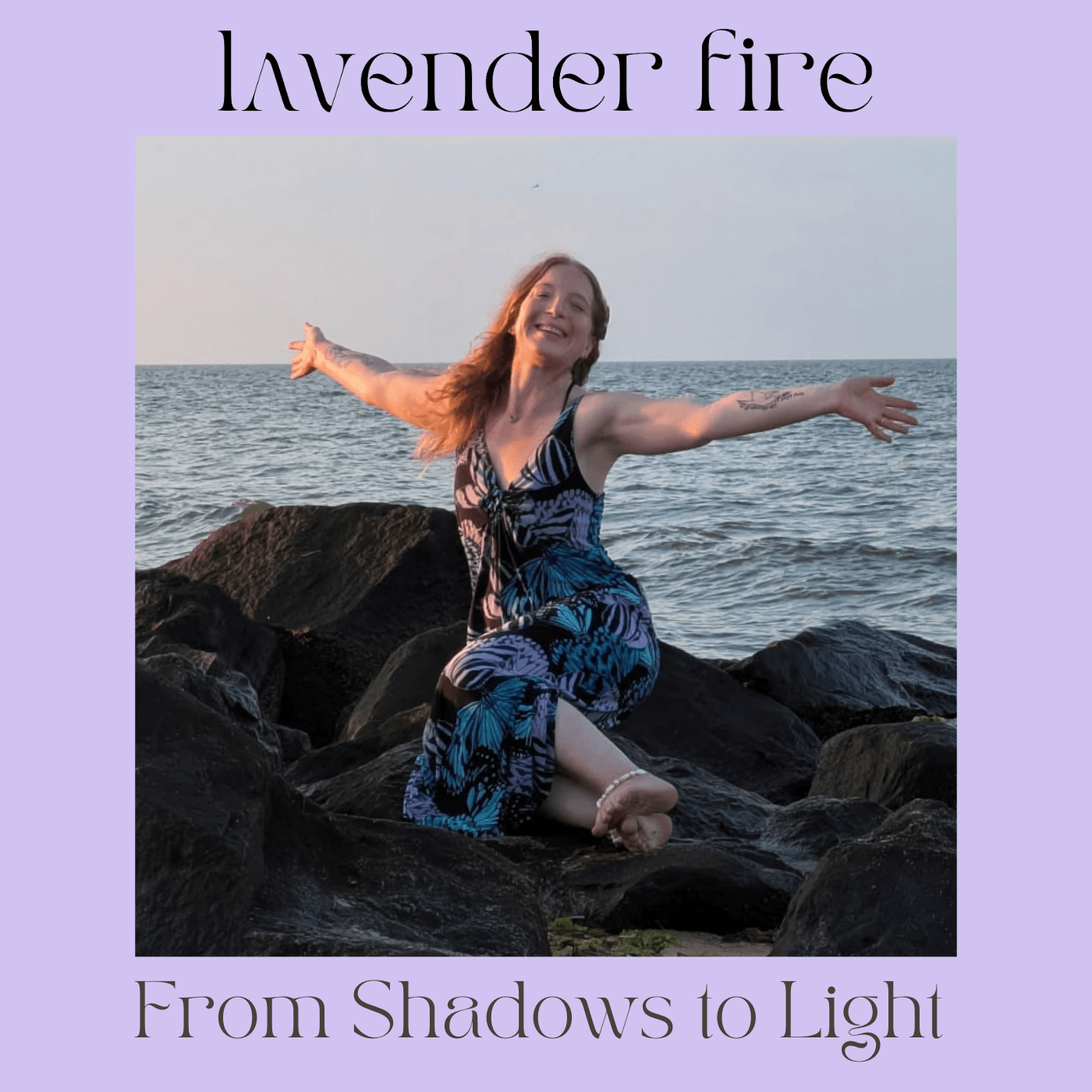
Lavender, love having you share your insights with us. Before we ask you more questions, maybe you can take a moment to introduce yourself to our readers who might have missed our earlier conversations?
So a little about me: in a nutshell, I’m a piano-based singer/songwriter. But even more than that, I am LGBT, so my songwriting touches on themes of self-acceptance, coming out later in life, as well as issues with being LGBT in a society that wants you to be like everyone else. I had suspected for years that I wasn’t straight, despite the fact that I married a man. However, after a lot of deliberation, I came out as a lesbian in my mid-30s and basically started my life over. And through it all, my music was there to guide me. At the time I was coming to terms with who I am, I was being mentored by Charlotte Martin, a singer/songwriter in her own right. She encouraged me to write from my experiences of being queer because other people could relate to my experiences and also because it would set me apart from other singer/songwriters. She told me my songwriting angle was unique, and so I should tap into that.
Well, I did! Once she told me that, I knew there was no going back, and I knew I’d found my songwriting voice after years of songwriting and figuring out who I was as a writer. I really think that there are two things that set me apart as a musician: I play piano, and I’m open in my songs about being LGBT. In real life, I’m kind of shy, but as Lavender Fire, I’m not. I spent so many years hiding in shame and wishing I could be like everyone else, and so I created the Lavender Fire project to express who I really am. In fact, I wear the lesbian pride flag around my neck when I perform, not just because I love the colors but also to show that we are here and our experiences are valid. Also, I wear that flag around my neck because many people know the rainbow flag, but not many know the lesbian one.
What makes me most proud as a musician is when someone tells me after a performance that my song meant a lot to them and spoke to their own life experiences. I want to help people know they’re not alone, that their feelings are valid, and it’s OK to be who you really are.
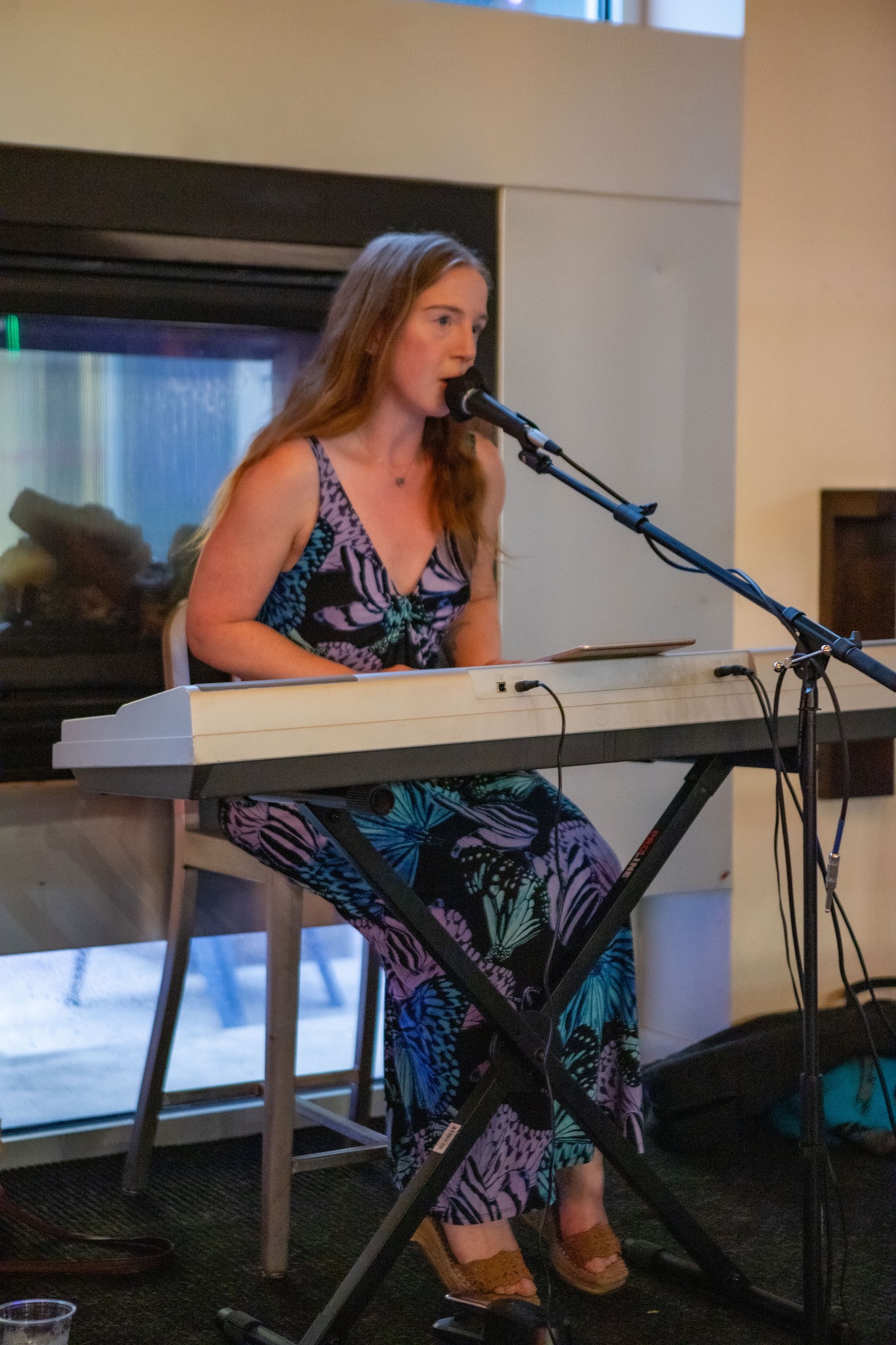
Is there something you think non-creatives will struggle to understand about your journey as a creative? Maybe you can provide some insight – you never know who might benefit from the enlightenment.
That it has taken a LOT of work to get to where I am. I used to think that people were just born with it. I’d watch American Idol and be so jealous that someone could open their mouths and automatically sound like a pop star.
But as I’ve gotten older, I’ve realized a few things:
1. Everyone’s creative journey is different
2. You have to define your own version of success; and MOST OF ALL:
3. Learning to sing well, and just being an artist, takes a LOT of practice, diligence, and hard work.
No one likes to hear this and frankly it’s the boring part that reality shows don’t want to show, but really, to be a decent musician takes a lot of work and time. And if you want to hit the big time, there’s also luck involved too.
Also, you have to define what success means to you. If you’re a musician, does that mean getting regular gigs? Getting your music in TV shows? Simply being able to record your own music in your own home studio so you can blow off steam from your day job? Is it being able to get up at karaoke night and perform without getting nervous? While being a world-famous musician might be a goal for some, that might not be someone else’s. And really, you have to think realistically. Those big-time musicians have not only gotten lucky but also, there’s a whole team behind them, shaping their sound, look, etc.
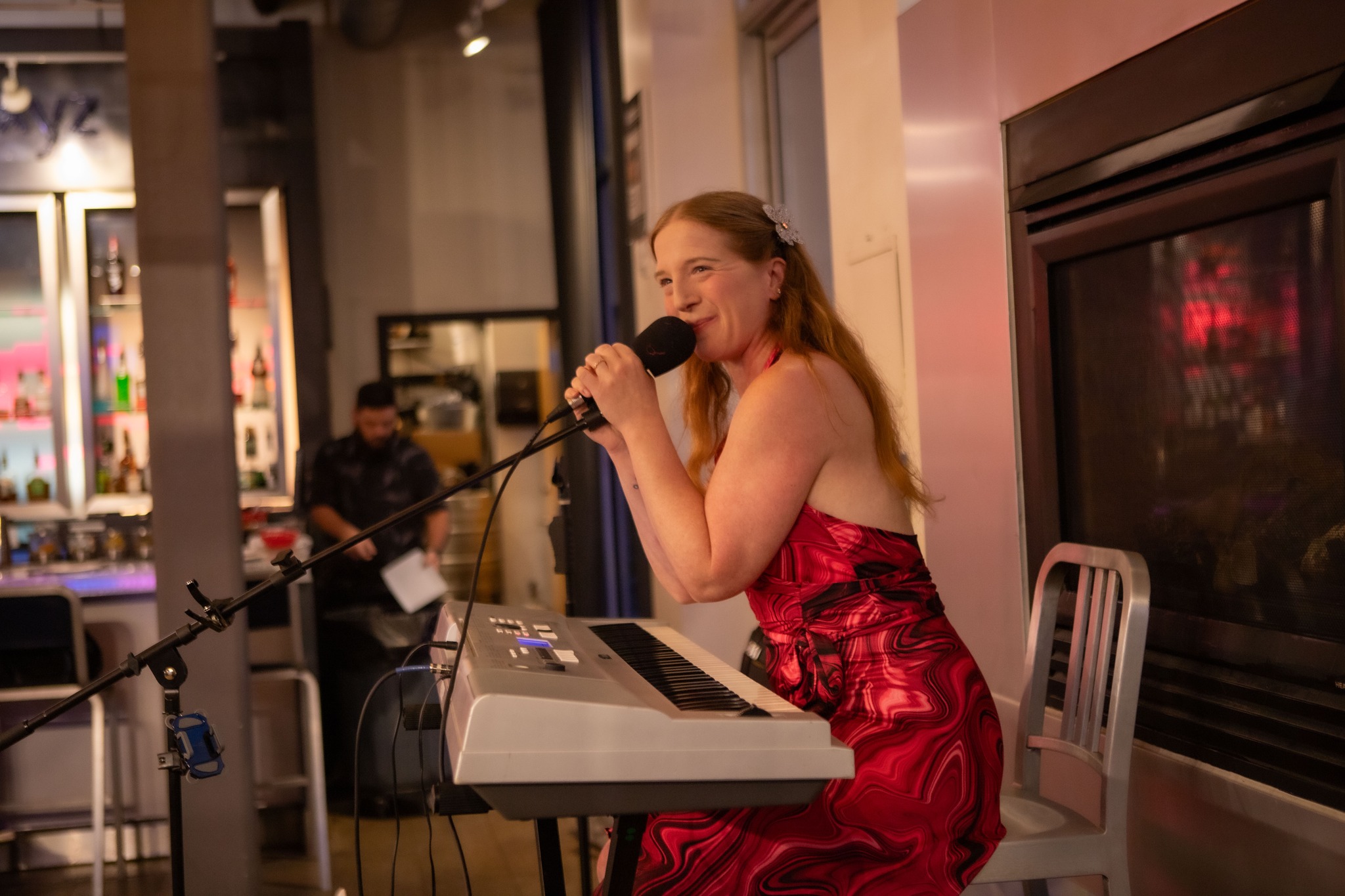
We often hear about learning lessons – but just as important is unlearning lessons. Have you ever had to unlearn a lesson?
Learning how to unlearn the classical singing I did as a teenager!
As I mentioned, I took classical voice lessons when I was younger. I would’ve preferred learning to sing more of the music I liked, but I had to take what was offered to me. Places like School of Rock, where you could learn to sing pop and rock music, didn’t exist yet. So if you took voice lessons, the teachers only taught classical and maybe musical theater.
I didn’t realize that learning this way meant that I wouldn’t sound good on more contemporary music. No one told me that. I was under the impression that this is the only way to sing, and that’s that.
Instead, I had to learn it the hard way. By basically trying to sing my own stuff in this classical way I’d been taught, not liking what I heard, and having a friend tell me that I need to stop singing classically if I wanted to sound better. What I didn’t realize til later is that the classical way I’d learned to sing meant that I had a very rounded tone so as to carry the sound of my voice without the use of a microphone. If you’re wondering what I mean by a rounded tone, think Phantom of the Opera.
Something else I didn’t realize until later, was that singing contemporary music and singing classically use different parts of your voice in different ways. For example, pop singers (or at least, the pop divas I grew up hearing) use their chest voice a lot more to get that big belting sound. I didn’t learn to pull my chest voice up in a pop way, so even now, I usually flip to head voice when singing along with someone who’s belting. I can belt sometimes, but I tend to produce it in a more classical way to preserve my voice, and I also don’t belt as high since I don’t want to kill my voice!
It’s taken years of trying and practice to get to where I’ve unlearned a lot of that, though even now, I still warm up my voice in a classical way and I do use my head voice a lot. It just means it makes my voice more unique, and I’m happy with that!
Contact Info:
- Website: https://www.lavenderfiremusic.com
- Instagram: https://www.instagram.com/lavenderfiremusic
- Facebook: https://Facebook.com/lavenderfiremusic
- Youtube: http://www.youtube.com/@lavenderfiremusic
- Other: https://www.linktr.ee/lavenderfiremusic
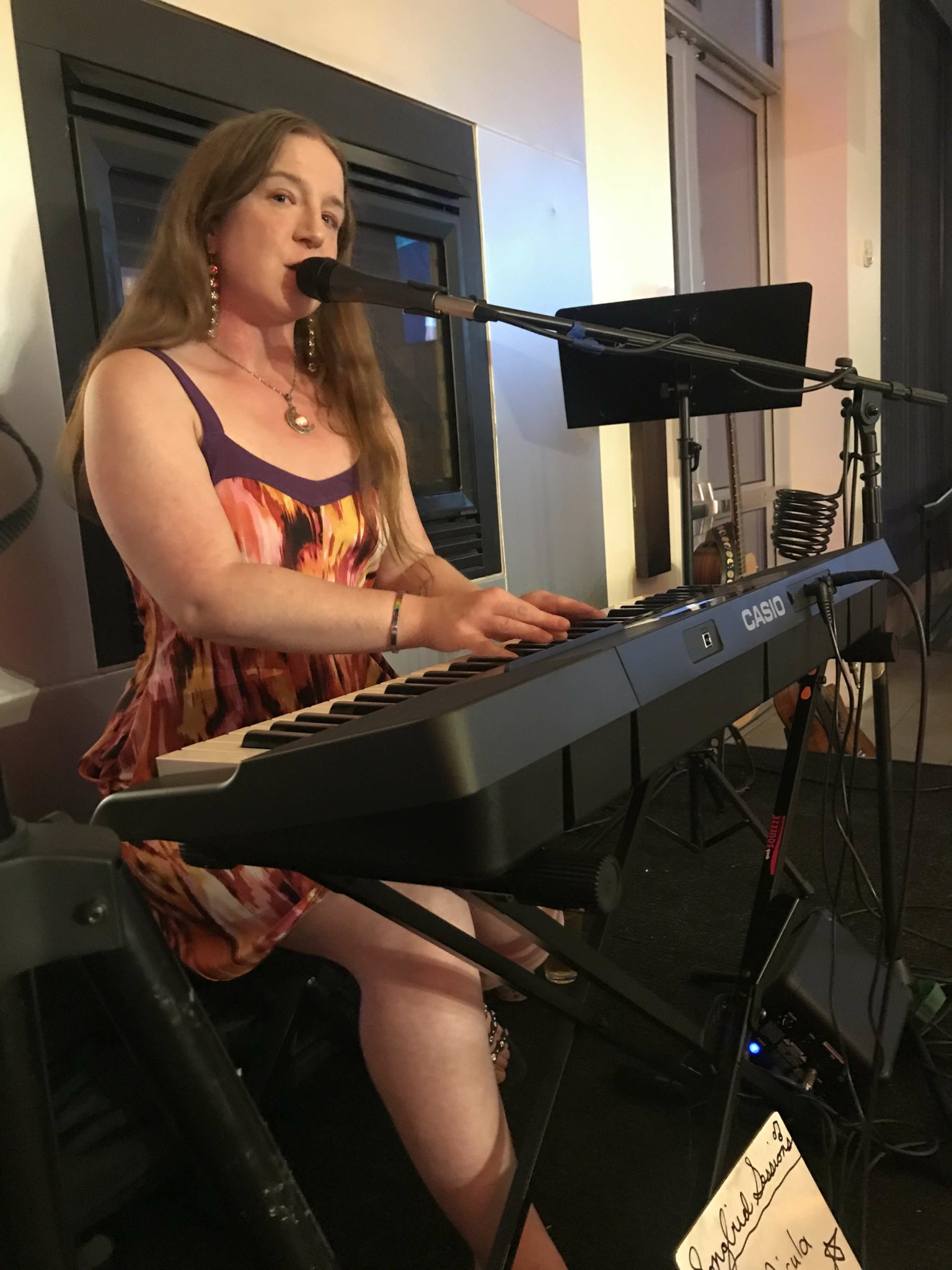
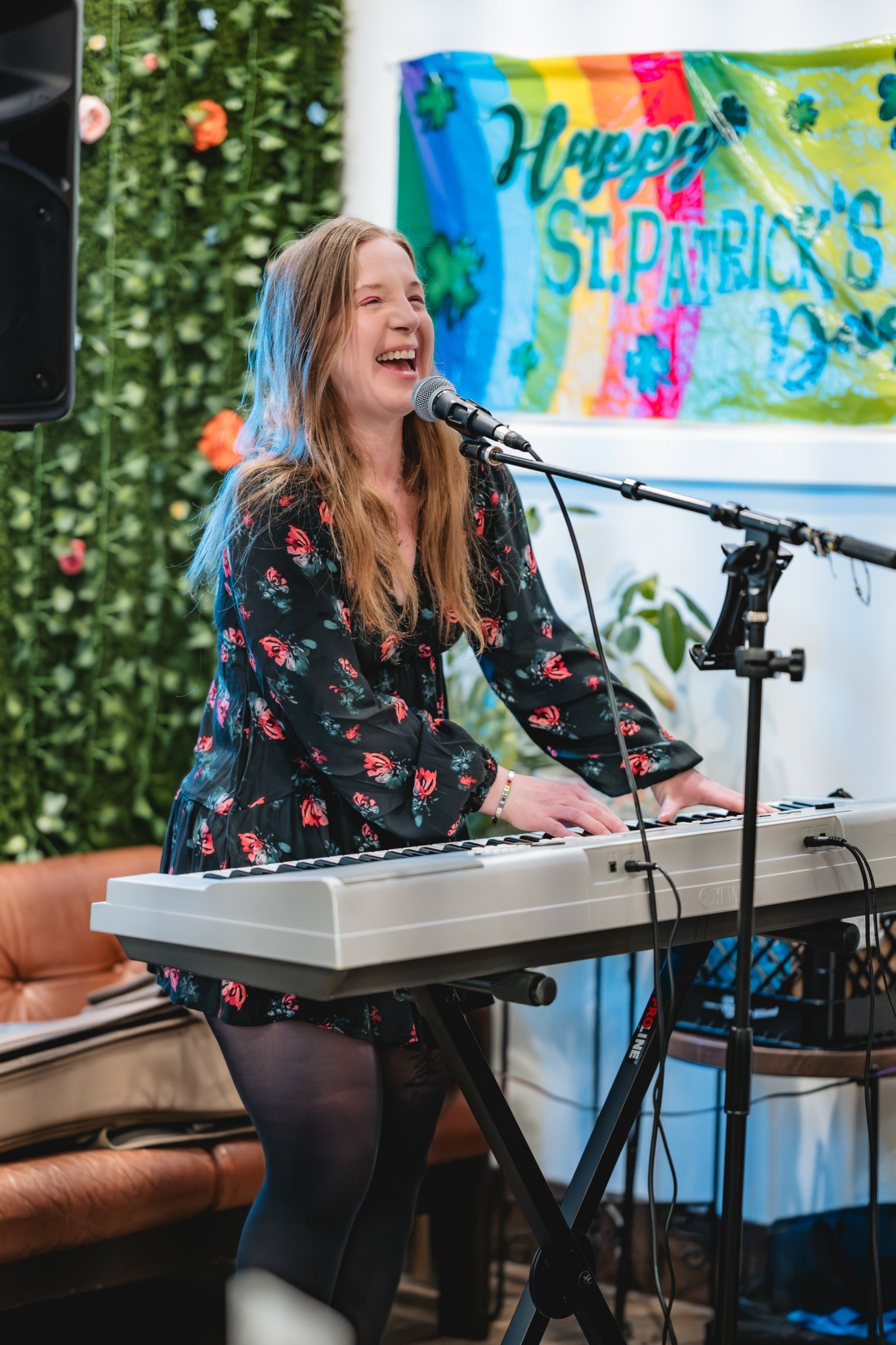

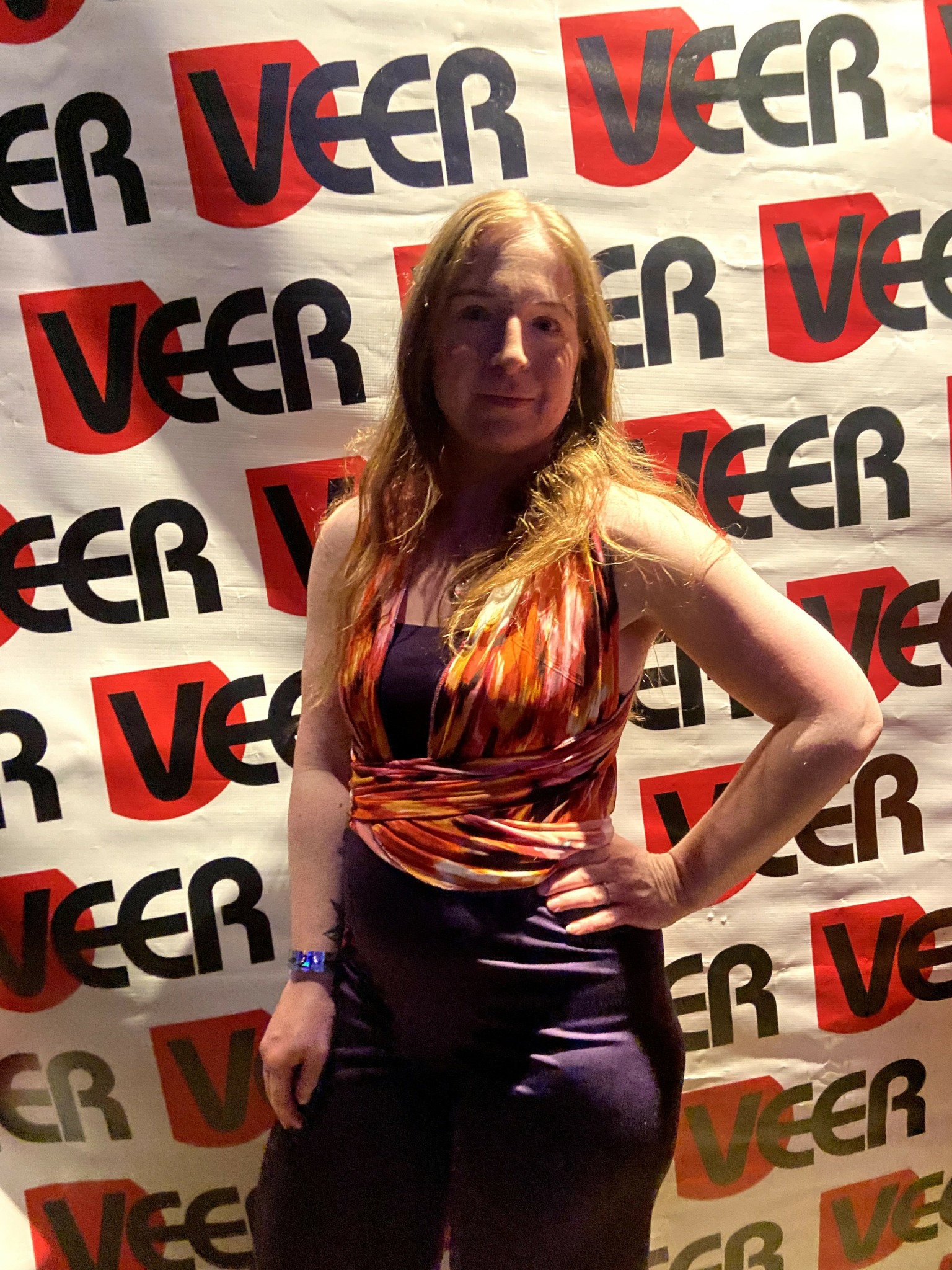
Image Credits
Ming Gao
Emily Fraser
Nell Dare
Jayme Drew of the All the Genders Photo Project


